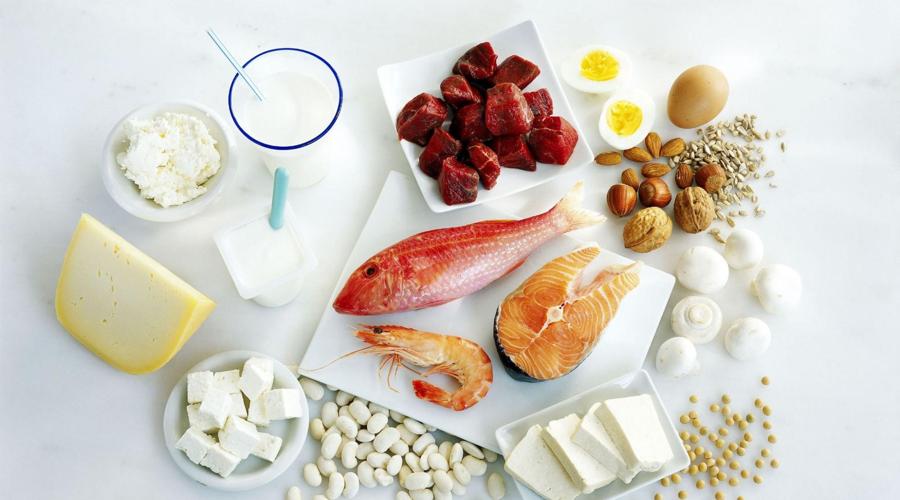Are you looking for a healthy and sustainable way to boost your protein intake while still enjoying delicious and flavorful meals? Look no further than the high protein Mediterranean diet. This eating pattern, which has been associated with numerous health benefits, combines the heart-healthy principles of the traditional Mediterranean diet with a focus on lean proteins like fish, poultry, legumes, and nuts. In this blog post, we’ll explore the science behind the high protein Mediterranean diet and why it may be a great choice for those looking to improve their overall health and well-being. From the benefits of a plant-based diet to the importance of balancing macronutrients, we’ll cover everything you need to know to get started on this delicious and nutritious eating plan.

Benefits of High Protein Mediterranean Diet
- Weight management: High protein diets have been shown to promote satiety and reduce overall calorie intake, which can help with weight loss or weight management goals. The Mediterranean diet, with its emphasis on whole foods and healthy fats, can be a sustainable and enjoyable way to follow a high protein eating plan.
- Improved blood sugar control: Protein can help stabilize blood sugar levels, which is particularly important for those with diabetes or other blood sugar-related health conditions. The Mediterranean diet’s focus on whole grains, vegetables, and lean proteins can help keep blood sugar levels in check.
- Reduced risk of heart disease: The Mediterranean diet has been linked to a lower risk of heart disease, and a high protein version of the diet may provide even more heart-healthy benefits. Lean proteins like fish and poultry, as well as healthy fats like olive oil and nuts, can help support heart health.
- Better muscle health: Protein is essential for building and maintaining muscle mass, which is important for overall health and mobility. A high protein Mediterranean diet that includes lean proteins like fish and legumes can help support muscle health.
- Improved overall nutrition: The Mediterranean diet is known for being rich in vitamins, minerals, and other important nutrients, and a high protein version of the diet can help ensure adequate protein intake without sacrificing overall nutrition. By focusing on whole foods and healthy sources of protein, a high protein Mediterranean diet can be a nutritious and delicious way to support overall health and wellness.

Ingredients of High Protein Mediterranean Diet
Lean proteins
Fish and seafood, poultry, legumes (such as lentils and chickpeas), and nuts and seeds are all excellent sources of protein in a Mediterranean-style eating plan. These foods are also rich in other important nutrients like fiber, healthy fats, and vitamins and minerals.
Vegetables
Vegetables of all kinds, particularly leafy greens and non-starchy options like tomatoes, cucumbers, and peppers, are a key component of the Mediterranean diet. They provide important vitamins and minerals, as well as fiber to support digestion and overall health.
Whole grains
Whole grains like brown rice, quinoa, and whole wheat bread and pasta are also an important part of the Mediterranean diet. They provide complex carbohydrates for energy, as well as fiber and important micronutrients.
Healthy fats
The Mediterranean diet emphasizes healthy fats like olive oil, avocado, and nuts and seeds. These fats can help support heart health and overall well-being.
Dairy and dairy alternatives
Low-fat dairy products like yogurt and cheese can be included in moderation in a high protein Mediterranean diet. For those who avoid dairy, alternatives like soy or almond milk can be used.
Herbs and spices
Herbs and spices like garlic, basil, oregano, and cumin are commonly used in Mediterranean-style cooking, adding flavor and nutritional benefits without adding extra calories or sodium.

Tips of High Protein Mediterranean Diet
- Prioritize lean proteins: Choose lean sources of protein like fish, poultry, and legumes to maximize protein intake without consuming too much saturated fat.
- Experiment with plant-based proteins: Incorporate more vegetarian protein sources like beans, lentils, and tofu to increase protein intake while also adding variety to your diet.
- Include healthy fats: Incorporate healthy fats like olive oil, avocado, and nuts and seeds into meals and snacks to support heart health and overall well-being.
- Focus on whole foods: Choose whole, unprocessed foods as much as possible to maximize nutritional value and minimize intake of added sugars, sodium, and unhealthy fats.
- Use herbs and spices: Experiment with different herbs and spices to add flavor and nutritional benefits to meals without adding extra calories or sodium.
- Plan ahead: Take time to plan out meals and snacks in advance to ensure you’re getting adequate protein and other important nutrients throughout the day.
- Be mindful of portion sizes: While protein is an important part of a high protein Mediterranean diet, it’s also important to be mindful of portion sizes to avoid consuming too many calories.

In conclusion, a high protein Mediterranean diet can offer numerous health benefits, including weight management, improved blood sugar control, reduced risk of heart disease, better muscle health, and improved overall nutrition. By incorporating lean proteins like fish and poultry, plant-based proteins like legumes and nuts, and healthy fats like olive oil and avocado into meals and snacks, it’s possible to follow a Mediterranean-style eating plan that’s both delicious and nutritious. With a focus on whole, unprocessed foods and mindful portion sizes, a high protein Mediterranean diet can be a sustainable and enjoyable way to support overall health and wellness.

